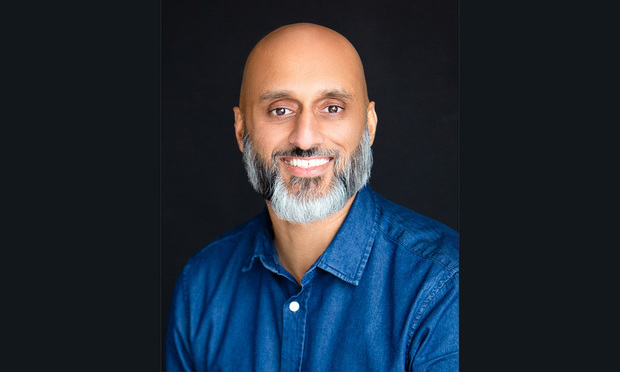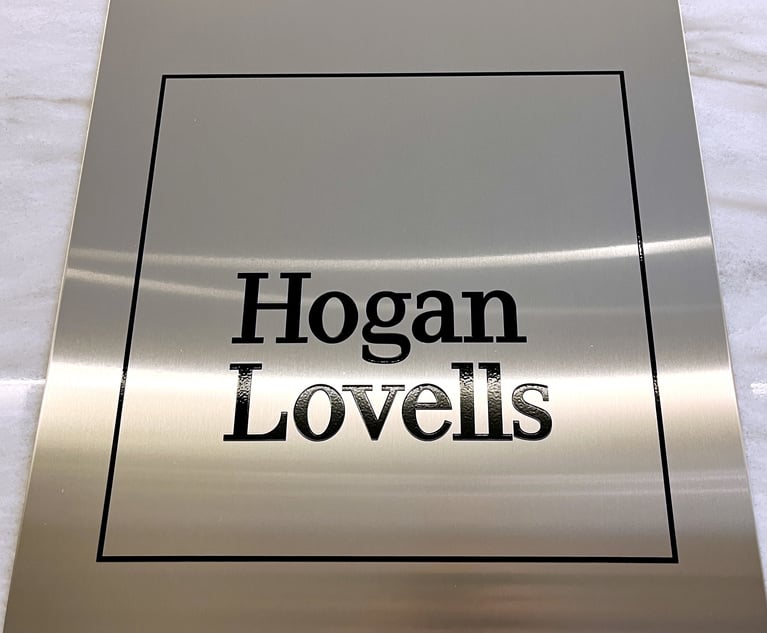Lead by Example: Five Actions Law Firms Must Take to Address Systemic Anti-Black Racism
Confronting racial violence and its impact on the legal workplace.
June 08, 2020 at 07:37 PM
8 minute read
 Rudhir Krishtel with Krishtel Coaching. (Courtesy photo)
Rudhir Krishtel with Krishtel Coaching. (Courtesy photo)
George Floyd's killing by law enforcement has forced us all to acknowledge the threat of racially motivated systematic violence faced by the black community. This tragedy amplifies those that preceded it: the deaths of Ahmaud Arbery, Breonna Taylor and countless other black Americans.
The weight of systemic anti-black racism has implications for mental health, wellness and productivity. Simultaneously, COVID-19 continues to impact black communities disproportionately, adding to the challenges faced by many. This is a not an issue of politics. In order to make the workplace and our country better, there are practical steps we can take to resolve these issues.
While many law firms have taken good steps to address bias in the workplace through diversity and inclusion efforts, there is much more to do. Law firms must anticipate and account for the ways in which these challenges may appear in the workspace—necessitating a new approach to law firms' response to systemic anti-black racism. Without serious changes, law firms risk attorneys and staff experiencing increased workplace stress, reduced productivity, increased rates of burnout, racial tension at work, and pressure to hide their emotions in order to "be professional." A part of your law firm body is acutely hurting right now—our investment in attorney well-being demands urgent, responsive and appropriate care.
During the last two weeks, I have had numerous conversations with racially diverse clients including senior black attorneys, law firm executive committee members, talent heads and practice group leaders. These conversations have illuminated the many challenges that black employees (including business teams and staff) face and suggest certain actions that law firms can begin to take now. The following are five specific actions law firms can take to address the continuing problems black attorneys face in the workplace.
Steps Law Firms Can Take
- Center black colleagues and practice empathy.
Your black employees should feel like they can show up as their whole selves at work right now. Treat them as you would your most valued clients.
Emotions may be very raw right now. Practice empathy with your black colleagues, whether those colleagues report to you or you report to them. Check in and practice active listening. A simple email or phone call will suffice here (and too much may be a drain, so ask). Do not take it personally if any individual's response suggests they may need space at the moment.
Also, remember your black colleagues are not there to support you right now or help you make sense of what is happening. Do not ask them to shoulder your concerns. You wouldn't respond to a client in crisis by detailing your problems. Again, practice active listening. Listening means not talking or offering solutions until being asked for solutions.
Law firms traditionally lack structures to help staff with emotional issues. Invest in supporting all your black employees by flagging available resources (e.g., employee assistance programs, therapists, coaches, etc.) and offer to create spaces exclusively for black employees (whether inter-office, inter-firm, or intra-firm) to get together and process any difficulty; you may want to consider inviting a skilled facilitator to assist. Before deciding on a non-black facilitator, check in with the black employees on your team.
Also, don't be afraid to think creatively in order to support your colleagues. Acknowledge that productivity is not the priority right now, or consider offering reduced hours and allow people to opt out of the process, rather than opt in. This can be helpful to those who feel pressure to neglect their mental health and self-care for the sake of performance. Employees simply may not feel comfortable taking a break without the approval of management.
- Take an authentic stand to support black team members.
This is not a trend. Your response should not be mere performance. Put out an unequivocal statement from your firm's leadership, showing their leadership. Don't talk about racism generally, or direct conversations to issues related to people of color more broadly. It is important to name systemic anti-black racism explicitly. Use language that is clear and unequivocal about the crisis itself. Treat your black employees like your client base: express empathy, compassion, solidarity and a willingness to try to meet their needs.
By contributing to causes that matter, you send a clear message about where you stand, and your commitment to meaningful social change. Making space for lawyers to provide pro bono support can also reaffirm the firm's commitment to equity and justice for all.
- Make quantifiable commitments and changes to promote and hire.
For decades, the needle has not moved on diversity. Propel it forward by making public and quantifiable statements about what a successful diversity initiative looks like. How many black partners over how many years? How many black associates are you going to hire? Are you a workplace that has little or no black employees? How much more of your firm's revenue are you going to dedicate to fixing this problem? Make publicly stated objectives that create accountability. Advance beyond the Mansfield Rule. Be more vocal that you realize there is a problem, and that you will be working on an updated action plan that will be announced in the near term. Then follow through and stay publicly accountable.
Consider who is at the table in your senior management. Do you have significant representation of black attorneys at the management levels? If not, be bold. Figure out those that can be catapulted to change this and set a plan to promote immediately. Simultaneously work with HR to make sure these new additions to the management level are meaningfully integrated and included.
When you promote your black colleagues, make sure they are supported with meaningful mentorship or coaching. Work with HR to create thoughtful support structures for those who are newly promoted and to diversify senior leadership and staff. Similarly, investigate vendors across your supply and value chains, to make far-reaching, actionable change throughout your business relationships.
- Create safe spaces to talk about anti-black racism.
Invite facilitated dialogue on systemic inequality. Create safe spaces for leaders and team members for frank and forthcoming dialogue (rather than defensiveness). Foster openness on these issues that can otherwise lead to stress and isolation. Combining mindfulness training with facilitated dialogue will support your workplace in deep listening, mindful speech, and "sitting with the discomfort" of having these difficult conversations. Pilot discussions using non-violent communication tools for safely understanding, identifying and addressing anti-black racism and systemic race-based bias and harm. The important thing is to envision and ultimately create a workforce community that is well informed and equipped to engage with one another in difficult dialogue. We all have to learn to do this work to move the ball forward.
- Address wealth and equity.
Have a strategy on opening the pipeline of profits, points, promotion and succession planning by first examining those processes for how bias (implicit and explicit) and racism show up. As one example, how are you reshaping wealth distribution? Are partners discussing openly the pipeline on succession or how credit is shared with black attorneys? Are you having real dialogue with black attorneys about business development and including them as more than token roles on pitches (e.g., building real relationships with clients)? Facilitate these dialogues. Similarly, provide resources to empower your black colleagues to ask for credit when they help with a new client, and then actually have dialogue to ensure senior attorneys are giving it to them.
Don't Let Discomfort Stand in the Way of Progress
Through the many conversations I have had with clients and colleagues, particularly over the last few weeks, I found that white attorneys and non-black people of color are expressing that they want to make a change, yet confess having difficulty engaging in these conversations or knowing what to do. There are also fears around liability and HR-related flags in having these discussions in the first place. But your law firm will be a better place just by getting a group of lawyers together to help figure this out. None of this is easy to do, because there is no playbook. Even among black colleagues, you are likely to find a range of opinions and reactions. I invite us all to investigate underneath our fears and get comfortable with what's uncomfortable. Let us demonstrate leadership, collectively understand, and pursue wise action so the legacy we leave behind builds a more equitable legal profession, creates a fair workplace environment, and actively and intentionally contributes to a more just society.
Rudhir Krishtel practiced law for 15 years as an Am Law 100 litigation partner and then as senior counsel at Apple, and is now an executive coach and facilitator for lawyers. Seeing the many challenges lawyers face in their practice, Krishtel trained as a yoga and mindfulness meditation teacher and as a professional coach to serve as a resource and support for the legal community.
This content has been archived. It is available through our partners, LexisNexis® and Bloomberg Law.
To view this content, please continue to their sites.
Not a Lexis Subscriber?
Subscribe Now
Not a Bloomberg Law Subscriber?
Subscribe Now
NOT FOR REPRINT
© 2025 ALM Global, LLC, All Rights Reserved. Request academic re-use from www.copyright.com. All other uses, submit a request to [email protected]. For more information visit Asset & Logo Licensing.
You Might Like
View All
Texas-Based Ferguson Braswell Expands in California With 6-Lawyer Team From Orange County Law Firm
2 minute read

Hogan Lovells Hires Quinn Emanuel IP Litigator in San Francisco

Farella Elevates First Female Firmwide Managing Partners
Trending Stories
- 1SDNY Criminal Division Deputy Chief Returns to Debevoise
- 2Brownstein Adds Former Interior Secretary, Offering 'Strategic Counsel' During New Trump Term
- 3Tragedy on I-95: Florida Lawsuit Against Horizon Freight System Could Set New Precedent in Crash Cases
- 4Weil, Loading Up on More Regulatory Talent, Adds SEC Asset Management Co-Chief
- 5Big Banks Did Great Last Year. What Does That Mean for Big Law?
Who Got The Work
J. Brugh Lower of Gibbons has entered an appearance for industrial equipment supplier Devco Corporation in a pending trademark infringement lawsuit. The suit, accusing the defendant of selling knock-off Graco products, was filed Dec. 18 in New Jersey District Court by Rivkin Radler on behalf of Graco Inc. and Graco Minnesota. The case, assigned to U.S. District Judge Zahid N. Quraishi, is 3:24-cv-11294, Graco Inc. et al v. Devco Corporation.
Who Got The Work
Rebecca Maller-Stein and Kent A. Yalowitz of Arnold & Porter Kaye Scholer have entered their appearances for Hanaco Venture Capital and its executives, Lior Prosor and David Frankel, in a pending securities lawsuit. The action, filed on Dec. 24 in New York Southern District Court by Zell, Aron & Co. on behalf of Goldeneye Advisors, accuses the defendants of negligently and fraudulently managing the plaintiff's $1 million investment. The case, assigned to U.S. District Judge Vernon S. Broderick, is 1:24-cv-09918, Goldeneye Advisors, LLC v. Hanaco Venture Capital, Ltd. et al.
Who Got The Work
Attorneys from A&O Shearman has stepped in as defense counsel for Toronto-Dominion Bank and other defendants in a pending securities class action. The suit, filed Dec. 11 in New York Southern District Court by Bleichmar Fonti & Auld, accuses the defendants of concealing the bank's 'pervasive' deficiencies in regards to its compliance with the Bank Secrecy Act and the quality of its anti-money laundering controls. The case, assigned to U.S. District Judge Arun Subramanian, is 1:24-cv-09445, Gonzalez v. The Toronto-Dominion Bank et al.
Who Got The Work
Crown Castle International, a Pennsylvania company providing shared communications infrastructure, has turned to Luke D. Wolf of Gordon Rees Scully Mansukhani to fend off a pending breach-of-contract lawsuit. The court action, filed Nov. 25 in Michigan Eastern District Court by Hooper Hathaway PC on behalf of The Town Residences LLC, accuses Crown Castle of failing to transfer approximately $30,000 in utility payments from T-Mobile in breach of a roof-top lease and assignment agreement. The case, assigned to U.S. District Judge Susan K. Declercq, is 2:24-cv-13131, The Town Residences LLC v. T-Mobile US, Inc. et al.
Who Got The Work
Wilfred P. Coronato and Daniel M. Schwartz of McCarter & English have stepped in as defense counsel to Electrolux Home Products Inc. in a pending product liability lawsuit. The court action, filed Nov. 26 in New York Eastern District Court by Poulos Lopiccolo PC and Nagel Rice LLP on behalf of David Stern, alleges that the defendant's refrigerators’ drawers and shelving repeatedly break and fall apart within months after purchase. The case, assigned to U.S. District Judge Joan M. Azrack, is 2:24-cv-08204, Stern v. Electrolux Home Products, Inc.
Featured Firms
Law Offices of Gary Martin Hays & Associates, P.C.
(470) 294-1674
Law Offices of Mark E. Salomone
(857) 444-6468
Smith & Hassler
(713) 739-1250






